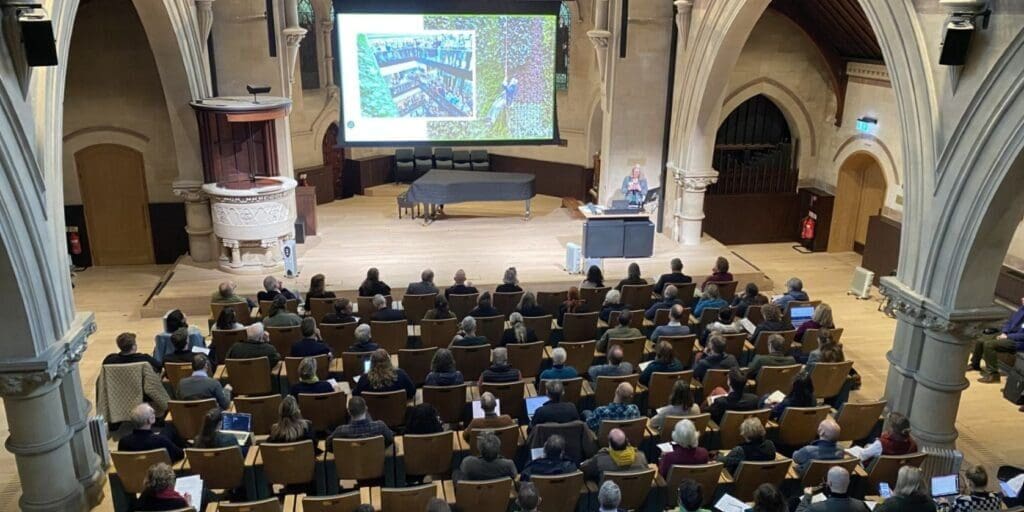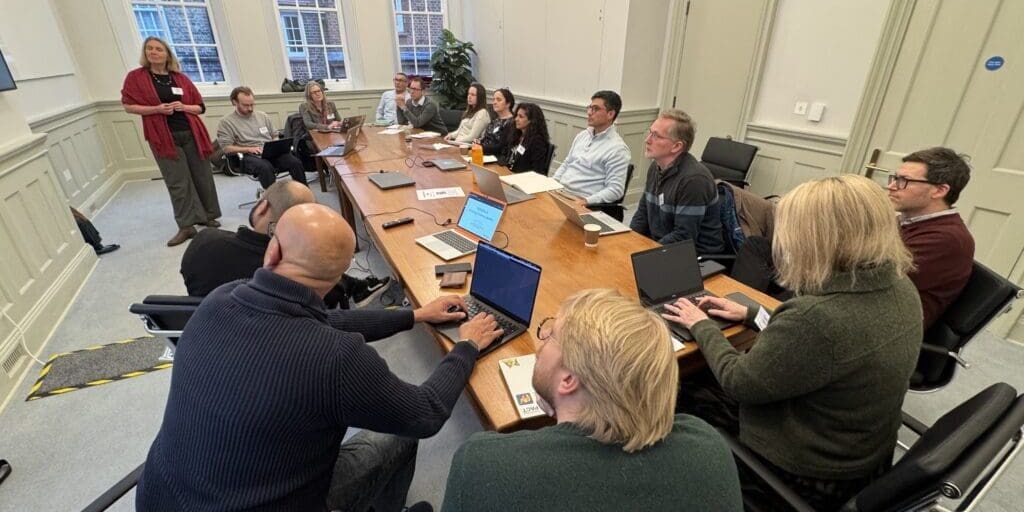Conservation Evidence at the European Congress of Conservation Biology

The Conservation Evidence group is actively engaged in the 7th European Congress of Conservation Biology, being held this week in a rather warm Bologna, Italy.
Professor Bill Sutherland, Dr Vanessa Cutts and Dr William Morgan presented in a symposium on Tuesday, alongside colleagues from Foundations of Success, BirdLife International and the Conservation Coaches Network Europe. The symposium focused on how we can combine scientific evidence, local knowledge and practitioner experience for decision making and learning in conservation.

Bill presented an overview of the inefficiency paradox in conservation, arguing that conservationists can be much more effective and efficient if we consider the evidence when making decisions. Following the lead of aviation and medicine, the use of checklists to ensure good practice could also help. Bill’s book Transforming Conservation contains more information about these topics.
Vanessa explained the importance of considering practitioner knowledge and experience as part of the evidence base. She outlined our prototype Conservation Practitioner Insight database, which we’re currently populating with examples from the Fenland landscape in the UK.

William then discussed how we can assess and compile diverse evidence for conservation actions and strategies. Different pieces of evidence can be weighted according to their relevance and reliability when testing a particular assumption, placing them on a ‘balance’ to decide on the overall weight of evidence. William also reminded us of the importance of clarifying the particular assumption we’re testing in any given case, and thinking about the whole theory of change from action to desired outcome.

Later in the conference, Dr Nigel Taylor will be giving a speed talk to present our imminent synthesis of evidence for the conservation of vegetation in inland aquatic habitats [Wednesday, 18.00-19.00, Room I, Belmeloro Complex]. Ashley Simkins will be presenting some of the early work from his PhD, using exploring how conservation actions have contributed to improvements in species’ status on the IUCN Red List [Wednesday, 14.30-16.30, Room I Belmeloro Complex]. Professor Julia Jones, based at Bangor University and currently a visitor in the Conservation Evidence group, will be giving a provocative talk, questioning whether it’s time for a new perspective to reconcile mining and conservation in biodiversity hotspots – particularly drawing on her experience in Madagascar [Thursday, 12.00-13.00, Room A Belmeloro Complex].
It’s great to see several other posters and presentations that have quantified the effects of conservation actions and/or are thinking about how we can use evidence to make conservation more effective and efficient. It’s also been a pleasure to catch up with many Conservation Evidence alumni, who have gone on to have impactful careers in conservation science.
You can follow more updates from the Congress on X: #ECCB2024



